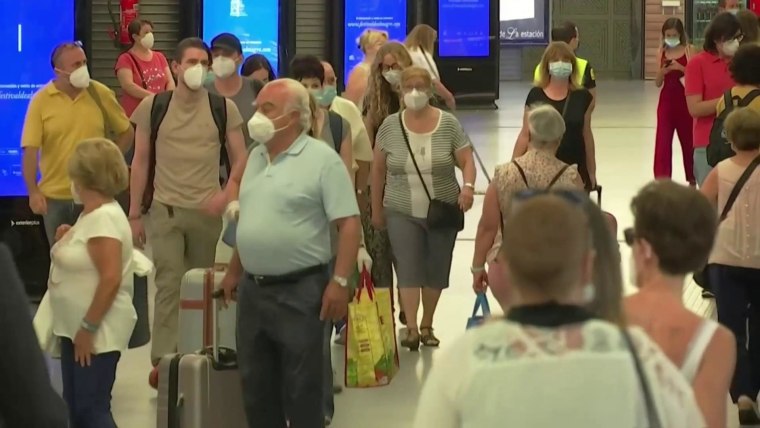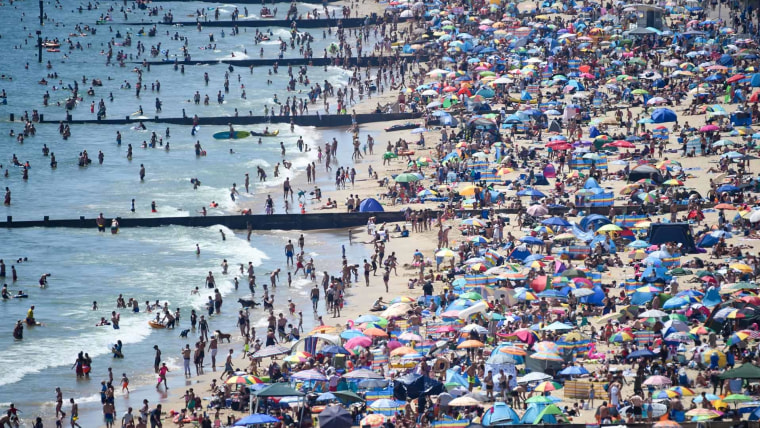LONDON — Most travelers from the United States will be barred from entering the European Union after it reopens its borders Wednesday because the coronavirus is still far too prevalent in the U.S., European officials announced Tuesday.
The E.U.’s 27 members have been drawing up a list of countries whose virus levels are deemed low enough to allow people from those places to travel into the bloc, which has been mostly sealed off since March.
That list of safe countries was officially unveiled by European officials on Tuesday. The U.S. — which has the most coronavirus cases and deaths in the world — was not on it.
The 15 countries that did make the list are: Algeria, Australia, Canada, Georgia, Japan, Montenegro, Morocco, New Zealand, Rwanda, Serbia, South Korea, Thailand, Tunisia and Uruguay.
China will also be included on the list if it allows entry to E.U. travelers in return.
The move is a sign of how the U.S. is seen by Europe and elsewhere as a global coronavirus hotbed.
The E.U. and U.S. experienced infection spikes in late March and early April. But while strict lockdown measures have seen those numbers decline across Europe, in the U.S. there have been recent flare-ups in states such as Florida and Texas while President Donald Trump has encouraged society to reopen.
More than 125,000 people in the U.S. have died from the coronavirus since the pandemic began, according to an NBC News tally.
Back in March, when Europe was the world’s coronavirus center, Trump announced sweeping travel restrictions — without telling any of his E.U. counterparts first.
But the E.U. says its selective travel list was not about political grudges and instead is based on epidemiological criteria.
A European briefing last week noted that the U.S. had seen 107 cases per 100,000 people in the previous 14 days, whereas the average across the E.U. was 16 cases per 100,000 people.
For any country not on the list, the E.U. restrictions on non-essential travel imposed in March still apply.
These restrictions do not apply to E.U. citizens abroad, health workers, people involved in the freight and haulage industries, diplomats and military personnel, and “passengers traveling for imperative family reasons.”















